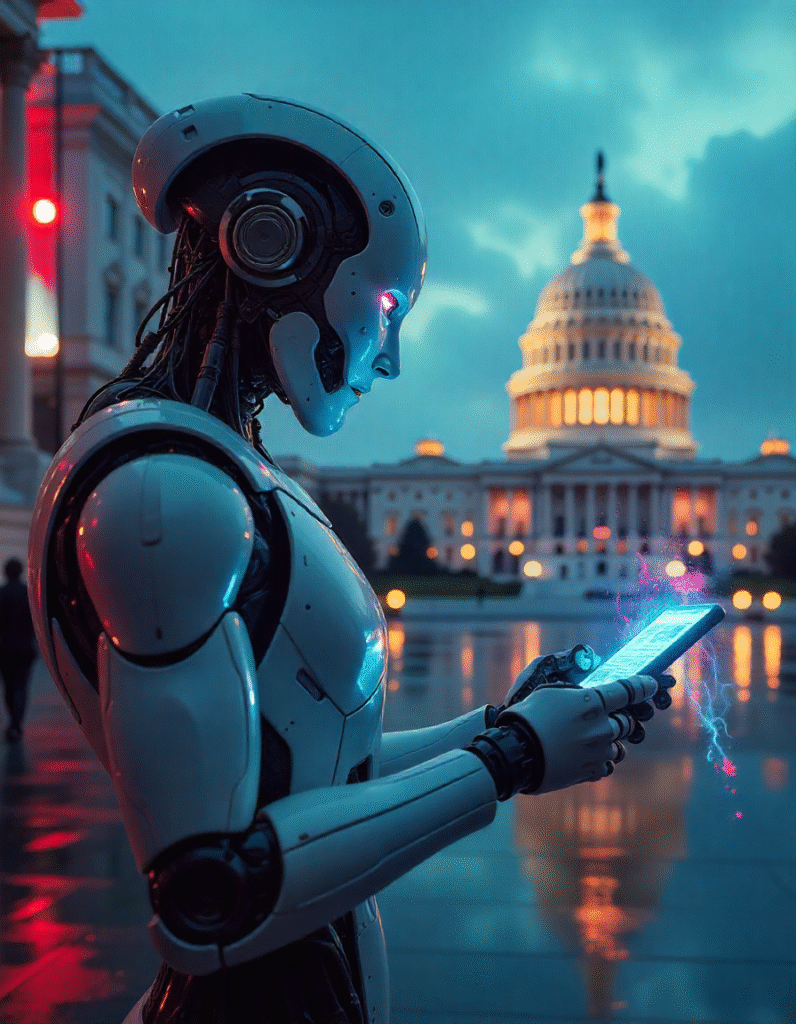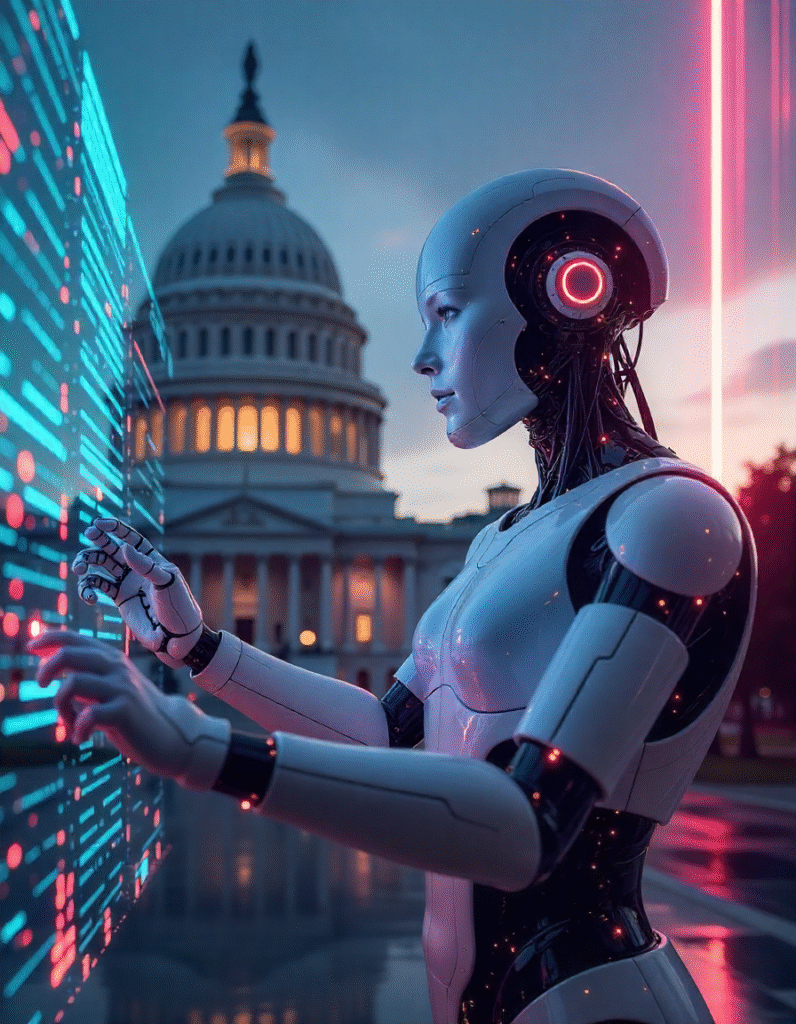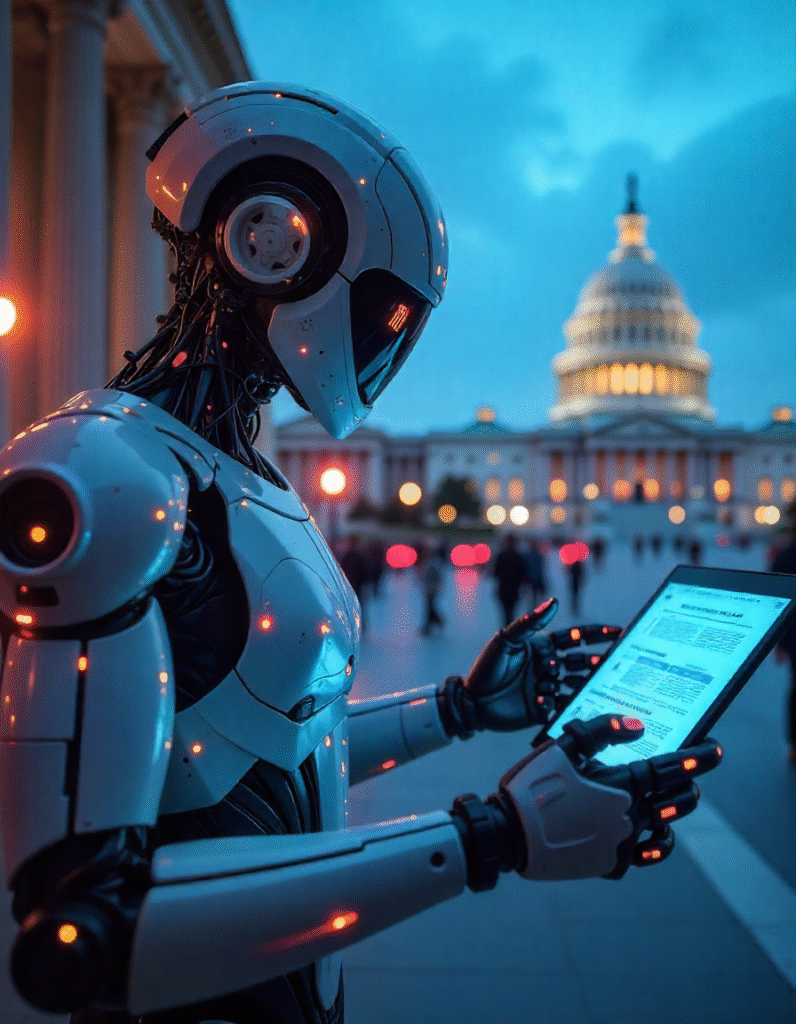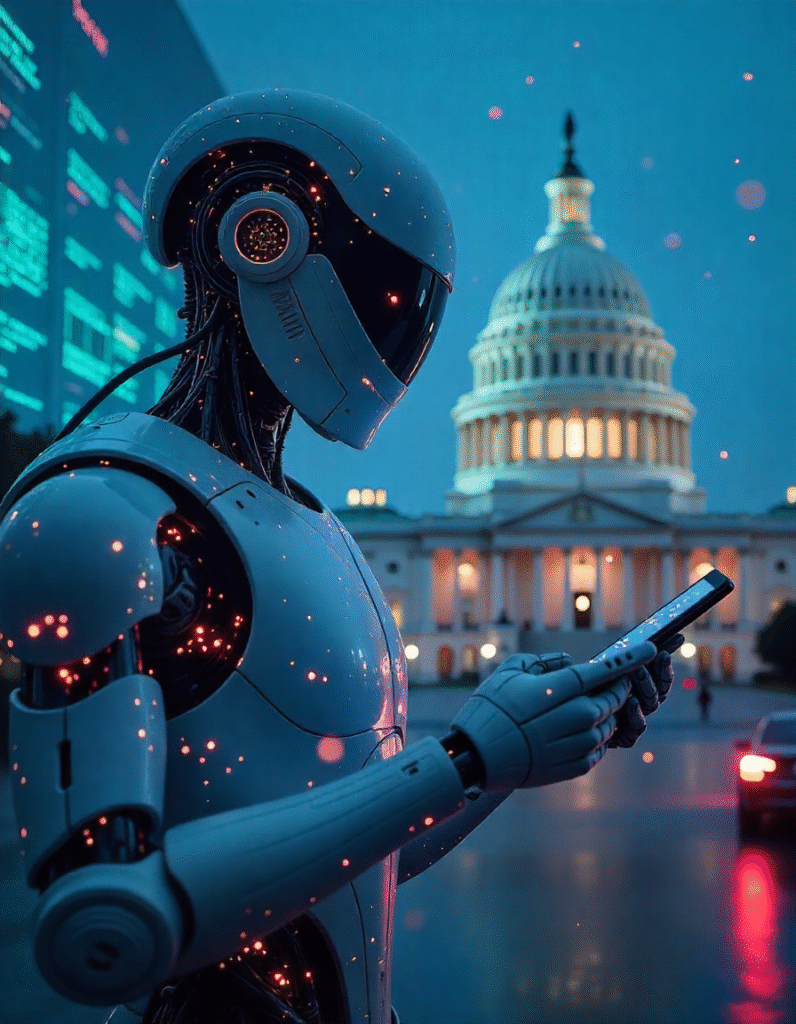Discover five urgent reasons why AI’s real-time influence on politics is reshaping democracy in the USA and why you must follow it now.
Five Reasons to Cover This Now: AI’s Real-Time Political Power Shift
Artificial Intelligence (AI) has already transformed industries like healthcare, finance, and retail. But its most significant—and controversial—impact is unfolding in the political arena. We’re entering an era where AI doesn’t just analyze political data; it shapes narratives, influences voter sentiment, and, in some cases, alters election outcomes in real time.
For U.S. readers concerned about democracy, national security, and truth itself, understanding this political power shift is no longer optional—it’s urgent. In this article, we’ll explore five compelling reasons to follow AI’s evolving role in politics right now.

1. AI Is Rewriting Political Campaign Strategies Overnight
Traditional political campaigns relied on polling, town halls, and focus groups to gauge voter sentiment. These methods were relatively slow and often outdated by the time results came in. Today, AI can analyze millions of social media posts, search trends, and online interactions in minutes, allowing campaigns to tailor their messages in real time.
For example:
- AI tools can detect which phrases resonate most with swing voters in Pennsylvania and deploy them instantly in digital ads.
- Campaigns can target specific demographic groups with laser precision—down to a voter’s interests, browsing history, and past political behavior.
The speed and scale of this change mean political strategies can pivot daily, making campaigns more agile, but also more manipulative.
Why this matters now: The 2024 U.S. elections will likely be the most AI-driven in history, setting precedents for how future campaigns operate.

2. Deepfakes Are Becoming Politically Weaponized
Deepfake technology—AI-generated videos or audio that convincingly mimic real people—was once a tech novelty. Now, it’s a serious political weapon. Imagine a fake video of a candidate making offensive remarks released 48 hours before an election. Even if proven false, the damage to public trust could be irreversible.
Notable risks include:
- Election interference: Deepfakes can be timed to drop right before key voting days, leaving no time for fact-checking.
- Diplomatic fallout: A falsified statement from a U.S. president could strain international relations.
- Voter confusion: When seeing is no longer believing, misinformation becomes harder to combat.
In 2023, several U.S. states began proposing laws to regulate deepfake use in political campaigns, but regulation is lagging far behind the technology.
Why this matters now: With every election cycle, deepfake sophistication improves, and the U.S. lacks unified federal safeguards.
3. AI Is Influencing Policy Decisions—Not Just Campaigns
AI isn’t only a tool for winning votes; it’s also being used by policymakers themselves. From drafting bills to analyzing legislative impacts, AI systems can crunch vast datasets and suggest policy moves faster than human analysts.
This has benefits—such as quicker responses to public health crises—but also serious concerns:
- Bias amplification: If the training data contains historical or systemic biases, AI will perpetuate them.
- Opaque decision-making: AI-driven policy recommendations often lack transparency, making it hard for the public to understand the reasoning.
- Corporate influence: Tech companies creating these systems can indirectly shape U.S. law by controlling the algorithms used.

Why this matters now: AI’s behind-the-scenes role in legislation is expanding quietly, with little public oversight.
4. Real-Time Voter Manipulation Is Now Possible
One of AI’s most alarming capabilities is real-time persuasion—the ability to monitor how people respond to political messaging and adjust content instantly for maximum influence.
Here’s how it works:
- A campaign runs targeted ads on social media.
- AI monitors likes, shares, and comments in real time.
- Messaging is modified within minutes to increase engagement.
This isn’t hypothetical—it’s already happening in marketing, and political strategists are adapting these same techniques. The result? A continuous feedback loop of influence that can subtly shift voter attitudes without them even realizing it.
Why this matters now: Once voters are locked into algorithmically optimized echo chambers, breaking out becomes incredibly difficult.
5. National Security Risks Are Escalating
Political AI isn’t just a domestic issue—it’s an international security concern. Adversarial nations can use AI to flood U.S. networks with misinformation, create fake grassroots movements, or exploit social divides.
The FBI and Department of Homeland Security have warned about:
- Foreign influence operations using AI chatbots to pose as American voters.
- Coordinated disinformation campaigns that exploit cultural or political tensions.
- Cyberattacks augmented by AI, targeting election infrastructure.
Why this matters now: The faster AI evolves, the harder it becomes to detect these threats before they cause harm.

How the U.S. Can Respond
Covering this AI-driven political shift isn’t just about awareness—it’s about preparedness. Policymakers, journalists, and citizens all have roles to play.
Recommended actions:
- Regulatory frameworks: Push for bipartisan federal laws regulating AI in political contexts.
- Public education: Support fact-checking initiatives and media literacy programs.
- Transparency demands: Require political campaigns to disclose AI-generated content.
- Tech accountability: Hold tech companies responsible for misuse of their AI tools.
Internal Linking Opportunities for SEO
Conclusion: The Clock Is Ticking on AI’s Political Influence
AI’s role in shaping U.S. politics is no longer speculative—it’s happening right now, in real time. From campaign messaging to deepfake warfare, from legislative drafting to voter manipulation, the technology’s influence is vast and accelerating.
The question isn’t whether AI will change politics—it’s whether we’ll act fast enough to ensure those changes protect democracy rather than undermine it. Covering this shift today isn’t just good journalism; it’s a civic responsibility.
